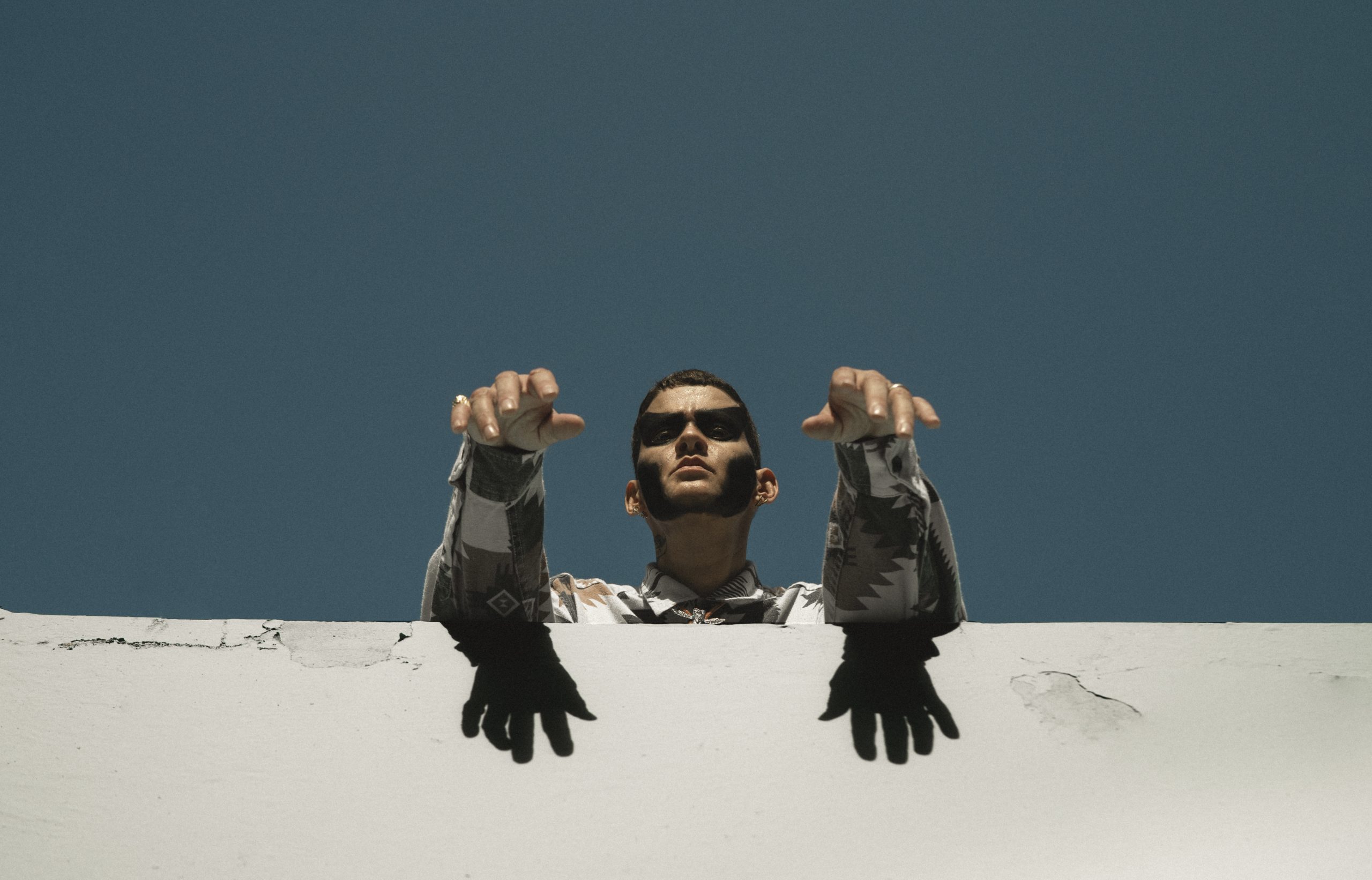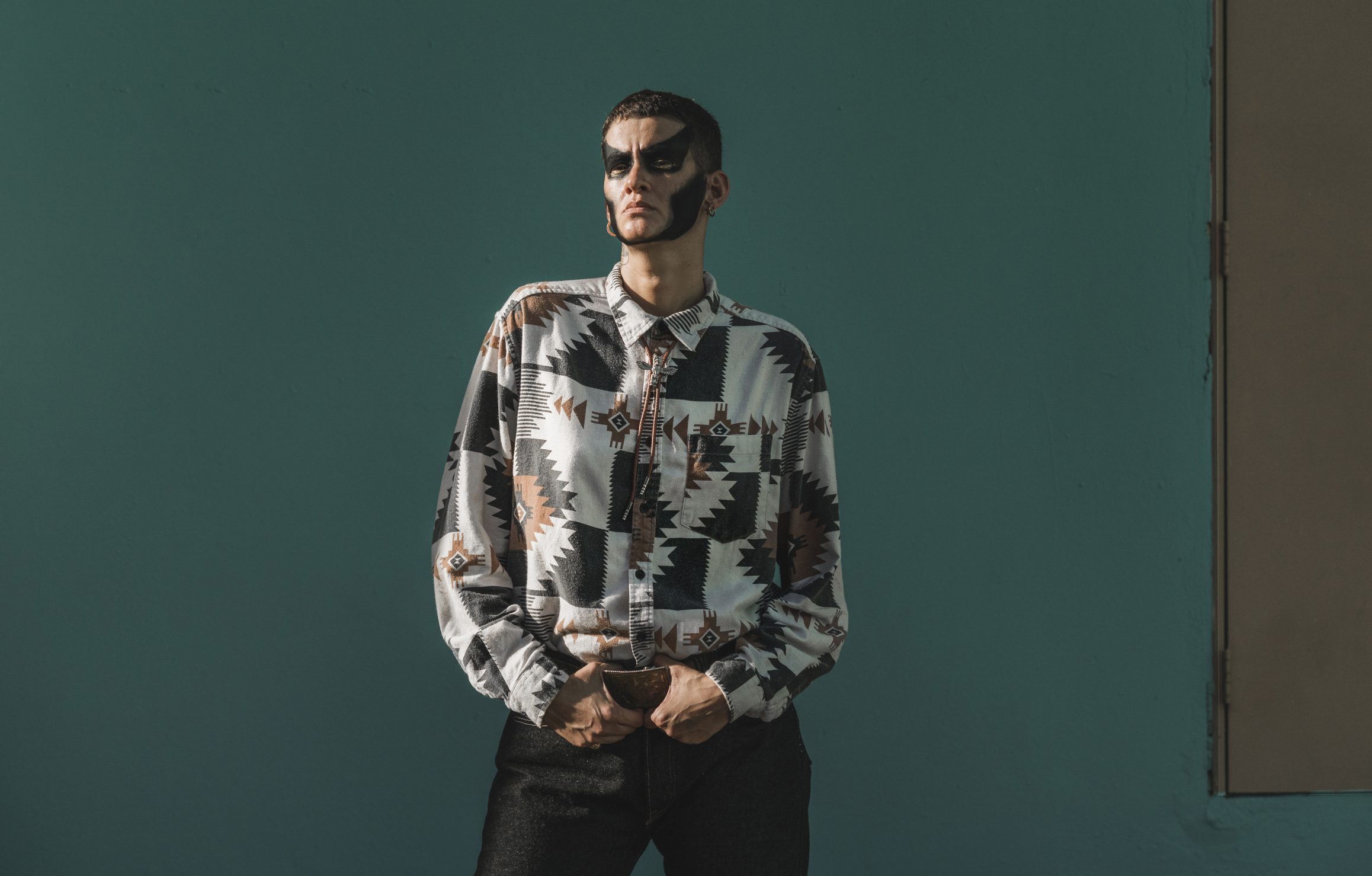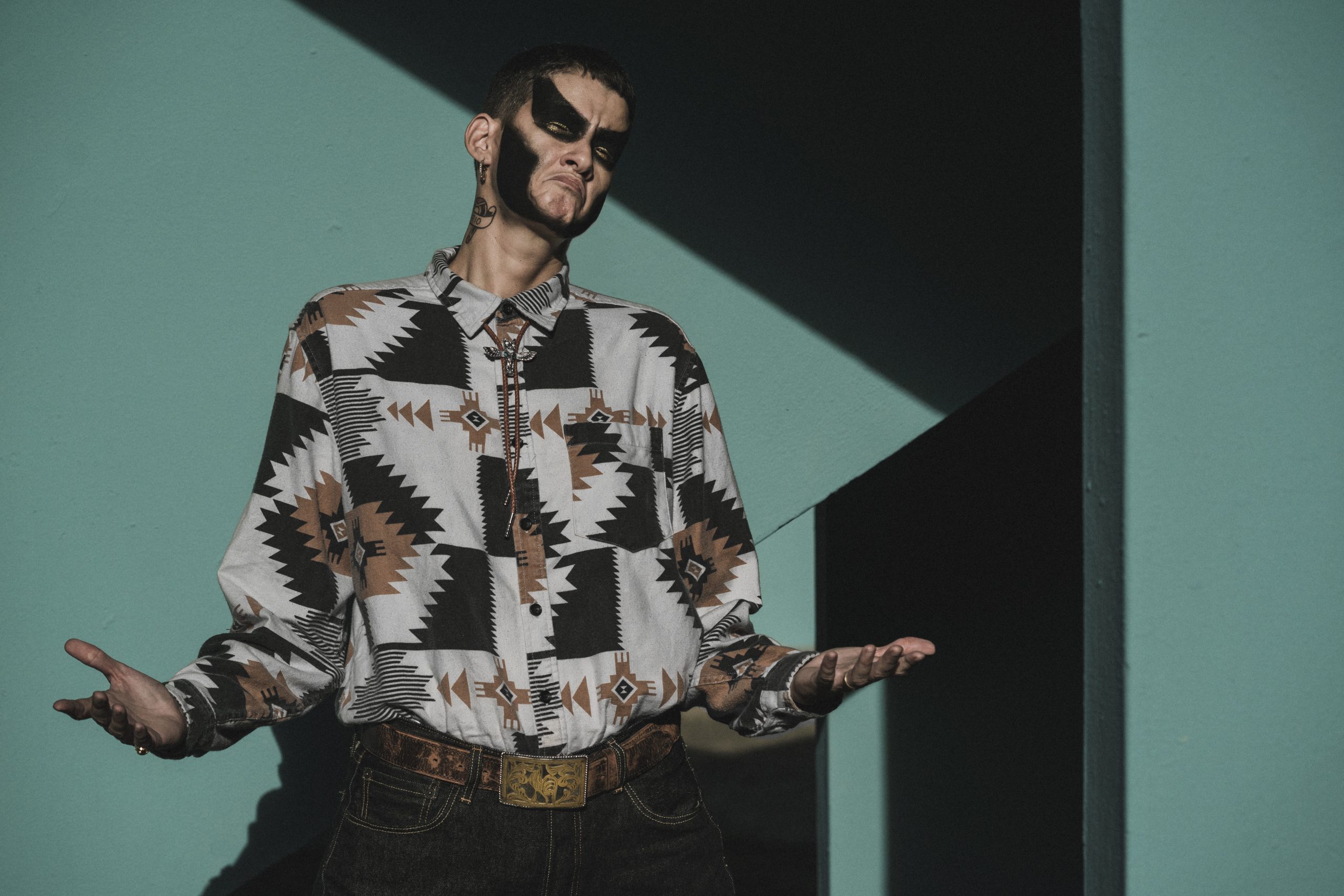
Celebrated Dominican writer and firebrand singer-songwriter Rita Indiana has been thinking about the apocalypse. Reaching renown as an outspoken social critic complicating the conversation around Caribbean identity and an experimentalist musician who fused dembow, metal, and merengue, she dedicated the better part of the last decade to writing award-winning novels. Longtime fans of her music have long been waiting for the return of La Montra (“The Monster”, as she’s called back in The DR) since she dropped El Juidero in 2010.
Enter Mandinga Times. Co-produced by Eduardo Cabra, formerly of Calle 13, Indiana’s first record in ten years is as cutting in its critiques and as expansive in its vision as El Juidero. Magic and mythology lie at the core of the record, with blaring metal guitars and roaring dembow drops co-existing with swaggering self-comparisons to legendary monsters (“Como Un Dragón”) and candid reflections of queer desire wrapped in bold string interlopations (“Miedo”). Mandinga, the alter-ego Indiana raps through clad in black-and-white face paint that calls to mind metal band Ghost’s Papa Emeritus, serves as the summoner and weaver of an apocalyptic tale that ultimately calls for humanity to get it together—and to keep dancing despite the fire falling from the sky.
“I came out with a song in 2017 and broke my musical silence, but I came back because I had a lot of things that were bothering me and wanted to make an artistic statement that had a little more weight,” says Indiana. “The songs are very economic; I love the form of a song, because it takes me 3-4 minutes to say what I need to say instead of months like when I’m writing a 300-page novel. Bars have a more democratic and free way of conveying my message. It feels much freer than a novel.”
Indiana called LADYGUNN from her home in Puerto Rico to discuss the magical imaginary of the Caribbean, blending metal, merengue and dembow, and the monstruous Mandinga is the best prophet du jour of these apocalyptic times.
***
Tell me about the name of the record and its eponymous alter ego; mandinga means “magic,” but I know it has a lot of other connotations.
The idea was to look for a word, an idea that surged as the record took form. The word mandinga means many things in Latin America—in some countries it alludes to witchcraft, and in others its a derogatory term for a Black Latinx. It also means someone with a big dick or a hypersexual, and some people use it to speak about a queer person. It’s a word that has been used for many purpoises, but above all with demonizing and othering. It’s interchangeable with “demon.” My alter ego has a lot to do with that idea of monstrosity, and that word cuts across Earth, humanity, gender, place, space, metality, era…I consider myself one of these people. It’s also about talking about these times, where we are living a gigantic and painful change. I really hope it’s for the better, but it’s hard times. The word “apocalypse” means nothing, but mandinga can encompass that too.
That idea really spoke to me in particular, especially watching the video for “El Zahir,” where you use all this Biblical imagery and deconstructing the image of “the coin” in a mystical context rather than a capitalist one.
I like to see it as us at the end of capitalism. I’m wondering when we’ll realize it’s not a matter of idealogy, but of a system that is kicking for the last time. It’s not a system that’s good for human beings; we have to look for other options and other types of exchange that don’t damage the environment or ourselves so we can live with dignity and not be so centered on production and reproduction of goods, of money, of absurdity.
Going into the topic of magic, the way you play with metal, merengue, and dembow sounds on this record reads as a sort of alchemy.
This record is a form of studying. It ‘s a laboratory, and it’s intimate; the video for my previous record deals with me being in a garage and making music, improvising and seeing what comes out. This record was me and Eduardo Cabra alone in a small studio, him recording half the instruments himself. He’s my neighbor; I’d have my coffee and head straight to his to record. It was a record that definitely contains a magical experimental process, I would say. Those experiments you notice—they’re eclectic, and they’re me seeking a bit of light in an obscure truth that we are all living through.

Can you speak to the Caribbean folk imagery used throughout and the way Mandinga as an alter-ego serves to conjure these mythologies and their creatures?
On one end of it is the concept of monstrosity, which we live within as queer people often with violent implications. The other day I was watching the Chavela Vargas documentary that talked about how her parents hid her; that’s not what happened with me, but because I present pretty masculine, because of how strange I was, because I loved the music I loved, I was always viewed as a kind of monster. I wanted to play with that aesthetic throughout the album. These are monstrous times we’re living in; Mandinga is a benevolent monster, a queer monster that exists outside the binary. The thing about magical imagery, or of the magical-religious imagery of ther Caribbean, is that it’s also been demonized. Afro-Caribbean culture has been demonized since colonial times, by both Christianity and the patriarchy. I grew up with these mystical images in the Dominican Republic; my paternal grandmother was a midwife who also did healing work, read tea leaves, and helped out people in the fields or those who couldn’t go to the clinic to give birth. She has an archive of oral histories that she shared with me, stories of witches and elves and creatures who transformed and lurk in the forest. She helped heal so many people, take them into a world of fantasy; she was a teacher, and she passed on this abundant universe of images that I still carry in me today.
In both your musical and literary work?
In everything! I don’t divide between the two. I’m a storyteller; my novels weave narratives and my songs provide a similar function. Music for me comes much faster, but a novel requires working with characters for a long time and it can take months, but they’re in conversation. This record wouldn’t exist if I hadn’t written La mucama de Omicunlé, for example.
I’m thinking of that one badass line from “Como un Dragón” — “Mientras tu escribiste un coro / Yo escribí cinco novelas.” This album veers between emotional highs and lows; I love how meditative “Miedo” is and how hopeful and large the closing track “Claroscuro” feels. Can you tell me about the structure of the record?
I wanted to close the record with a ray of hope. None opf us are born bad; we have light in us that’s murked by mental conditions, by situations that our education and our environment and the structure of the patriarchy put us in to make sure certain people are abused—and that’s allowed, because it’s the rule of law, because their education says its so. This light remains inside us all, and its up to us to make this earthly existence all it can be, because our planet is also a human being, a lifegiving force. We need to unite and get our shit together already.
It’s an ancestral pull; I almost feel like now that it’s taken a break from us, the Earth is affirming what we know: that it can continue without us.
This pandemic has been a kind of vaccine for the Earth, which has healed itself because we have behaved so badly toward it. We had to be pushed to the side for a bit, and I don’t think that’s a bad thing. We need to remember our place in it; we can’t let ourselves get to the point where we’re selling bottles of air.
This conversation has been condensed, edited and translated from Spanish for clarity.

CONNECT WITH Rita Indiana
INSTAGRAM // TWITTER // FACEBOOK
photos / Eduardo Martinez
story / E.R. Pulgar
